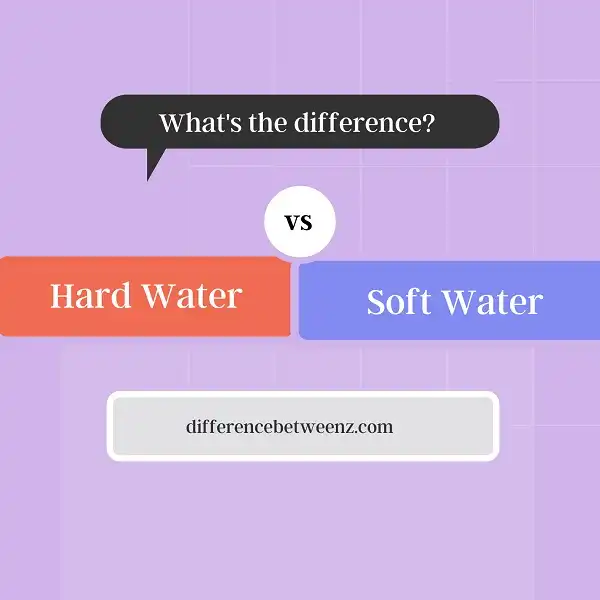Is there a difference between hard water and soft water? The answer to this question is yes, there is a difference. But what are the factors that make each type of water different? In this blog post, we will explore the differences between hard water and soft water, and discuss which type of water is better for your home. Stay tuned!
What is Hard Water?
Hard water is a type of water that contains high levels of dissolved minerals, such as calcium and magnesium. While hard water is not considered unsafe to drink, it can cause problems in some applications, such as boiler systems and home plumbing. In addition, hard water can make soap less effective, and it can leave behind deposits on clothing and dishes. Hard water is relatively common, and it is often found in areas with high limestone or dolomite concentrations. The best way to treat hard water is to use a water softener, which will remove the dissolved minerals from the water.
What is Soft Water?
Soft water is water that has low mineral content. Because it doesn’t have many dissolved minerals, soft water is often thought of as being “pure” water. It’s also RHULES-free, which means it won’t leave spots on dishes or cause soap to build up in sinks and showers. Soft water can be found naturally in some areas, but it’s more common for water to be chemically softened. This involves exchanging the calcium and magnesium ions in hard water with sodium ions. This process is known as ion exchange, and it’s often used to treat municipal water supplies. While soft water does have some benefits, it can also cause problems for plumbing fixtures and appliances. That’s because the lack of dissolved minerals can allow corrosive agents to attack metal surfaces. As a result, some people prefer to use hard water for household purposes.
Difference between Hard Water and Soft Water
Hard water is water that contains high levels of dissolved minerals, such as calcium and magnesium. This can happen when water filters through limestone or dolomite or comes into contact with certain types of rocks. As a result, hard water can leave behind deposits that can clog pipes and buildup on fixtures. Soft water, on the other hand, does not contain these high levels of dissolved minerals. This can be the result of treatment methods, such as reverse osmosis or ion exchange. Soft water also tends to produce more suds when soap is added and can make hair and skin feel cleaner after shampooing or bathing. While hard water is not necessarily harmful to health, it can be a nuisance in terms of plumbing and cleaning. Soft water may cost more, but many people feel that it is worth the investment.
Conclusion
In the end, it’s important to understand the difference between hard water and soft water. Hard water can be damaging to appliances and cost more energy bills, while soft water is beneficial for both home and personal care products.


